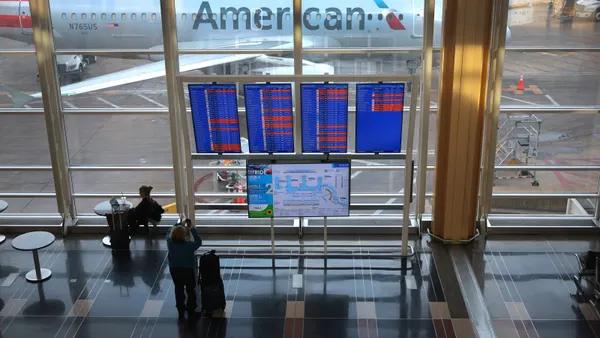Dive Brief:
- Travel loyalty program usage has stagnated in recent years, according to What Travelers Actually Want from Loyalty Programs, a Morning Consult report published last month.
- The share of U.S. adults who are members of a travel loyalty program was “largely consistent” between 2021 and 2024. No one demographic group showed membership growth during the three-year period, though millennials and high earners were consistently the most likely to belong to travel loyalty programs.
- Hotel loyalty programs, in particular, appear to be worse at drawing repeat guests than other travel loyalty programs, according to Morning Consult. Travel loyalty programs should consider streamlining the points redemption process to earn more bookings, the report notes.
Dive Insight:
The findings in Morning Consult’s report, authored by travel and hospitality analyst Lindsey Roeschke, were based on a survey conducted in October 2024 among 4,450 U.S. adults, as well as data from surveys conducted from between October 2021 to September 2024 among roughly 2,200 U.S. adults monthly.
Among hotel loyalty program members, 17% of survey respondents said they stayed at a hotel where they were not a member two times in the past year — an equal amount of times as they stayed at a hotel where they were a member. A smaller percentage of airline program members, on the other hand, 9%, say they booked two flights on airlines where they are not a member during the same time.
According to Morning Consult, this suggests that the influence of loyalty programs is “more pronounced for air travel than accommodations.”
Of those who stayed at hotels more frequently, however, rewards members who stayed at a hotel five or more times in the past year were twice as likely to book hotels where they were members.
Across the travel landscape, loyalty programs are powerful decision-making tools, with approximately three in five loyalty program members saying that they’ve considered their points and rewards when deciding where and when to travel, according to the report. Younger travelers, in particular, are more likely than others to take trips “simply because they have points to spend,” the report notes.
Travel providers, however, can earn more bookings by streamlining the points redemption process, Morning Consult advises. “Power users” — travelers who engage with a loyalty program every two to three months — frequently leave points on the table, either because they’ve expired or they can’t figure out how to redeem them, per the report.
The report suggests that travel loyalty programs must “do more to make members feel like valued customers,” with less than half of program members (43%) saying their loyalty program makes them feel like a valued customer. Older (35%) and wealthier travelers (32%), in particular, are most likely to believe that the value of their loyalty programs have decreased, the report found.
Strong loyalty programs are especially important to younger travelers, with 58% of Gen Z travelers reporting they use loyalty programs when booking activities or accommodations, compared to 49.9% of travelers overall, according to PMG. Roeschke previously told Hotel Dive that Gen Z is a “rising force” in travel.
Across sectors, loyalty program partnerships are gaining popularity. In the hotel industry, tie-ups have included Marriott Bonvoy’s deals with Starbucks Rewards and MGM Resorts International and Hyatt’s recent partnership with Las Vegas’ Venetian Resort.











